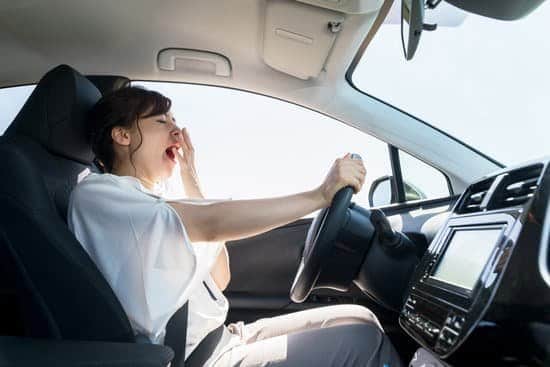Most of us would never drive after drinking or pull our phone out and scroll through social media while behind the wheel, but if you’ve ever been jolted awake as your car hit the rumble strip on the side of the road or you fell asleep at a stoplight, you were engaged in as dangerous a situation as driving while impaired or distracted. It’s important that all of us understand the implications of drowsy driving as we observe Drowsy Driving Prevention Week in November.
Drowsy driving is now listed as one of the National Highway Traffic Safety Administration’s top public safety dangers behind the wheel along with drugged, drunken and distracted driving. The National Sleep Foundation has concluded that anyone who has slept less than two hours in a 24 hour period is too sleep-deprived to operate a vehicle.
Here’s why; drowsy driving is estimated to cause the following each year:
• 328,000 crashes in the U.S.
• 6,400 highway deaths
• $109 billion in costs, not counting property damage
Here are some other startling statistics:
• More than half of drowsy driving crashes involve drivers age 25 and younger
• Driving 18 hours without sleep is equal to .05 blood alcohol impairment
• As many as one-third of drivers admitted that they have fallen asleep while driving
If you’ve battled to keep awake behind the wheel, you know how dangerous it can be; much like drunk drivers, overtired drivers have proven to have:
• Slower reaction times
• Impaired judgment
• Increased risk of risk-taking
• More frequent blinking/eye closure
• Deficits in cognitive performance
• Memory impairment
• Attention failure
Safety groups and the National Sleep Foundation urge you to pull over, stop and rest if you notice any of these warning signs:
• Difficulty focusing
• Frequent eye blinking
• Daydreaming
• Trouble recalling the last few miles or moments
• Repeated yawning or rubbing your eyes
• Trouble keeping your head up
• Driving across lanes or hitting a shoulder rumble strip
And, if you are a teacher, you are not immune. In addition to the risks associated with drowsy driving, being sleep deprived could also be affecting your performance in the classroom. A Ball State University study found nearly a fourth of teachers said their classroom skills were significantly diminished and half admitted to missing work or making errors do to a serious lack of sleep. About 43 percent slept an average of six hours a night and 64 percent said they felt drowsy during the school day. Exacerbating the problem is that so many school personnel spend late nights grading papers and preparing lesson plans. The study also found that almost half of the respondents worked a second job to make ends meet.
Lack of sleep can lead to serious health issues. Those who get only six hours or less per night were more likely to have a depletion of performance with an increased risk of heart attack, stroke, diabetes, depression, and obesity.
So what can you do to get more sleep? Experts say good sleep hygiene is essential:
• Try to get eight hours of sleep each night
• Avoid napping during the day
• Stop using stimulants such as caffeine, nicotine, and alcohol close to bedtime
• Stay away from heavy meals close to bedtime
• Get vigorous exercise during the day and try relaxing rituals such as yoga before bedtime
• Keep the bedroom for sleep; remove the TV
• Create a good sleep environment: eliminate excess noise and light and the temperature neither too hot or cold
Remember, getting a good night’s sleep and finding more time to relax can lead to a better classroom experience for you and your students, as well as reduce your risk of driving drowsy.
For more information visit:
https://bit.ly/2CyFr7K
https://bit.ly/2O1KRx9
https://bit.ly/32xAxCd
https://bit.ly/2NCKDxy
https://bit.ly/2q3OL0t
This article is furnished by California Casualty, providing auto and home insurance to educators, law enforcement officers, firefighters, and nurses. Get a quote at 1.866.704.8614 or www.calcas.com.
- California Casualty Earns Financial Stability Rating® of A, Exceptional, From Demotech, Inc. - April 28, 2025
- Music & Arts Grant Recipients – 2024 - December 13, 2024
- Understanding Auto and Home Insurance Rate Changes - December 3, 2024

